Evgeny Mikhailovich Belyaev | |
|---|---|
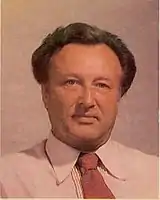 Evgeny Belyaev[2] | |
| Background information | |
| Born | 11 September 1926 Klintsy, Bryansk Oblast, Soviet Union |
| Origin | Klintsy, Bryansk Oblast, Soviet Union |
| Died | 21 February 1994 (aged 67) Moscow, Russia |
| Genres | Opera, Romantic music, military music, ethnic Russian music, easy listening, middle of the road, folk music. |
| Occupation(s) | Alexandrov Ensemble soloist |
| Years active | 1955–1992 |
| Labels | Kultur, BMG, EMI, Melodiya, Silva, Teldec, Victor, Columbia. Supraphon, |
Evgeny Mikhailovich Belyaev, also written as Yevgeny Belyayev (Russian: Евгений Михайлович Беля́ев) (Klintsy, 11 September 1926 – 21/22 February 1994), was a Russian tenor soloist of the Alexandrov Ensemble under Boris Alexandrov. He is remembered in the Soviet Union as the Russian Nightingale[3] and in the West as one of the definitive singers of Kalinka.[4]
Biography
Early years and private life
On 11 September 1926, he was born in Klintsy in the Bryansk Oblast.[5] As a child, he was known by the diminutive, Zhenia (the soft "g" of Bryansk).[3] As a schoolboy he won a singing competition at the Artek (camp) (Young Pioneer camp) near the Black Sea.[3]
During World War II he served in the subdivision of zenith troops and gained the Army Olympiad Prize.[6] He fought in Czechoslovakia and served as a Lance Corporal in the first Red Orders of Suvorov and Kutuzov division of the Carpathian Military District of the 4th Ukrainian Front under the command of General-Colonel Andrei Yeremenko. He is also said to have been in an anti-aircraft warfare unit and to have finished the war as a sergeant.[7] He is said to have sung in the lulls between the fighting.[3] (NB: The Suvorov and Kutuzov division later became the 93rd Mechanized Brigade (Ukraine)).
He then graduated from Gnessin State Musical College.[5] He married and had two sons, one of whom was a professional pianist.[8]
Musical career
1947: He was a soloist of the Ensemble of Song and Dance of the Carpathian military district.[5]
1952: He became a Member of the Communist Party of the Soviet Union (CPSU).[5]
1955: He was a soloist of the Ensemble of Song and Dance of the Soviet Army of Alexandrov (Alexandrov Ensemble).[5] Under conductor Boris Alexandrov he recorded many songs, and performed all over the world: e.g. Europe, USA, Canada and Japan. The Ensemble performed music by Soviet composers, and Russian and Ukrainian folk songs. Kalinka always drew special applause [7] During his time as soloist with the Ensemble, Belyaev's singing teacher was Yevgeny Kanger, who only trained the leading soloists.[9]
1958: Received the title: Honoured Artist of Russia (Meritorious Artist).[3]
1960: Received the title: People's Artist of Russia.[3]
1967: He was made People's Artist of the USSR.[5] 1960s-1970s: When the ensemble visited London, Belyaev was described as the "Russian Nightingale" and "Mr Kalinka",[10][11] and again "Monsieur Kalinka" in France.[3]
1978: He won the State Prize of the USSR.[3]
1980: He appears to have been associated in some way with Roskontsert (or Roskontserta), the big-band variety orchestra headed by the Russian jazz musician Oleg Lundstrem [12][13][14] Also in this year he sang the voice-over part of the cartoon rabbit in the Russian film,Pif Paf Oi Oi Oi (Russian: Пиф Паф Ой Ой Ой) (possibly Dir. Garri Bardin, 1980).[15] This animated cartoon dramatizes via opera a Russian nursery rhyme about a hunter shooting a rabbit ("Pif-paf!") which is brought home and found to be still alive ("Oi! Oi!").[16] Belyaev mainly performed in small chamber concerts in Russia after he left the Ensemble.[17]
At some point he was made Honorary Citizen of Klintsy, his home town.[18]
1994: In the 1990s he sang with the government musical organization RosKontsert as an independent soloist. On February 21 or 22, 1994 he died.[19][3] Belyaev attended Burdenko Military Hospital in Moscow with heart problems. He asked the doctors to let him go home for the weekend because there are usually no doctors during the weekend in hospitals, so they agreed. As soon as he arrived home on Kalininsky Prospekt (now Novy Arbat) in Moscow, he died straight away of a heart attack. He was buried in Moscow, not far from his fellow soloist Alexei Sergeev, in a section of Novodevichy Cemetery (Russian: Новоде́вичье кла́дбище) affiliated branch located in Kuntsevo District.[20][21][22]
Critical commentary
This commentary is about a music video featuring Evgeny Belyaev (see screenshot, right): Belyaev sings "Kalinka" on the music video "Soviet Army Chorus and Dance Ensemble".[23] The first "Mr Kalinka" was Victor Nikitin who was the second tenor (Pyotr Tverdokhlebov was the first) to perform it with the dramatic, overarching and operatic notes which now precede the chorus in every Ensemble soloist's performance of this song. The origin of this kind of tenor-bravado introduction to a song is in Arab music, and can still be heard in Flamenco cante jondo. "Kalinka" is a trivial song about a fruit tree, but it lends itself perfectly to this kind of operatic showing-off. Belyaev himself was already the recipient of popular acclaim after the 1956 London tour, and he had already been called "Mr Kalinka": the obvious natural successor to Nikitin. So in this performance, as the screenshot clearly shows, he is an immensely confident man with a great musical future before him. In fact it was very possibly the Cold War which kept him tied to the Ensemble and away from the operatic career which he clearly deserved. Since Nikitin, "Kalinka" has always been one of the signature songs of the Ensemble, and the performances are always presented as both great achievement and great fun. This ca.1960 video is filmed outdoors, and shows the soldiers laughing, joshing each other, and dancing comically at the end. This is acting of course, and a striking contrast to the severe picture of Soviet life which was being presented at that time in the West. In the last moments of the "Kalinka" performance, Belyaev, like the other soldierly soloists not allowed to gesticulate while singing, cannot help himself and performs a brief Russian dance movement with his arms, showing us something we did not know before: that his background was in Russian dance culture as well as in music.[24]
Notability
Worldwide fame
This superb lyric tenor[5] did not get the worldwide acclaim that he deserved during his lifetime; possibly because his prime occurred in the middle of the Cold War. Also his fame was subsumed within the fame of the Alexandrov Ensemble itself, when perhaps he would have gained greater personal fame had he pursued his natural course in the international opera circuit. However, it happens that he sang one of the definitive recorded versions of "Kalinka", and perhaps due to that, he is now becoming widely recognised and appreciated on websites such as YouTube.[25] This is partly the result of "Kalinka" being recently associated with Chelsea Football Club.
Russian fame
April 2007: In celebration of the 300th anniversary of the founding of Klintsy, Belyaev's home town, it was decided to install a bust of the singer by the sculptor A.Smirnov in the town .[3][26]
February 2008: A memorial concert was given in Bryansk in memory of Belyaev. It was attended by his great-niece Ekaterina Belaeva, fellow Communist Party members, people from his hometown Klintsy, and his old musical colleagues from the Alexandrov Ensemble. On this day the Klintsovskoy children's music school was named after Evgeny Belyaev.[27]
Repertoire
His work as soloist with the Alexandrov Ensemble meant that he sang primarily songs in the Russian folk music genre, traditional songs, and other songs about Russia, besides a few foreign songs and operatic arias. For this he was considered a "national treasure".[28]
What the songs are about
In alphabetical order of titles, with links to auto-lyrics:
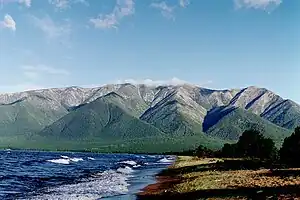
.jpg.webp)
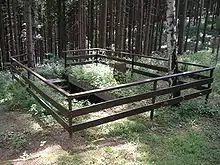

"Accidental Waltz": Probably a love song (lyrics unavailable).
"And Again I Am in Line": Song of the veteran pilots of World War II, and their replacement by younger pilots[29]
"Baikal Beauty" recalls beautiful Lake Baikal and a girl at home for the homesick soldier.[30]
"Before the Long Journey" remembers preparations for people's long journeys in the past; comparing them with the preparations of modern astronauts. Possibly sung as a tribute to Yuri Gagarin and his fellow astronauts.[31]
"Bryanski Partisan Song": A guerilla song about Soviet partisans that mentions an ambush, burnt houses and revenge.[31]
"By Mostochku Narrow": Possibly a veteran soldier's reminiscences (lyrics unavailable).
"Choir of Sailors from the Opera Dawn": (lyrics unavailable).
"Click the Guy": About soldiers, girls and Moscow (lyrics unavailable).
"The Cruiser Aurora": "What do you dream of, cruiser Aurora, in the hour when the morning comes on the Neva?" The Aurora is a symbol of the Communist Revolution, and she has been a museum ship on the Neva at St. Petersburg since 1957.[32]
"Donetski Night": refers to the horror of the Battle of Stalingrad, and optimism about a woman (lyrics unavailable).
"Evening on the Road"/"Night on the Road": A sailors' song about going to sea.[30]
"Far Far Away": About border guards far from home, protecting their homeland.[30]
"Favourite Remember Us": Possibly about soldiers under orders, who know they will not come back (lyrics unavailable).
"Immortelle": Ballad about the death by the River Don of a heroic Cossack soldier, his body guarded by a single immortelle or everlasting Helichrysum flower, which according to the lyric does not bend with the wind.[30]
"In a Sunny Forest Clearing": A soldier's love song.[31]
"In the Dugouts"': A soldier in his dugout in the snow, sings to his accordion about his girl far away, and feels warm at the thought before he dies.[31]
"Kalinka": A song about a snowball tree.
"Nightingales" ("Solovii"): The lyric of "Nightingales" asks the nightingale to be quiet as the soldiers are sleeping. The song says that they need to sleep in preparation for the next battle, and there is an implication in the music that they may not come home. It is possible to interpret their next battle in relation to the afterlife, so the audience has the option to infer that they have died. [33] .[34]
"Ogonek": Possibly about a girl and a soldier. It may refer to Ogonyok, (Russian: Огонёк), which means "little flame", as a symbol of love (lyrics unavailable).
"Oh You Rye": A love song (lyrics unavailable).
"Cold Waves Lapping": (lyrics unavailable).
"'Ridna My Mother": (lyrics unavailable).
"Rodina": About the Russian landscape.[31]
"Russian Field"': The Russian landscape as Fatherland.[31]
"Shooting Kommunarov": A war story to give encouragement to fight.[31]
"Sing Soldiers": A hearty song for military morale.[31]
"Song of Russia": The Russian landscape and Vladimir Lenin.[31]
Two Maxim: a machine-gun song (lyrics unavailable).
"Where Are You Now, Friends": About soldiers returning from World War II.[30]
Song arrangements
Belyaev was a great lyric tenor, but it's Boris Alexandrov's[35][36] musical arrangement (see Alexandrov Ensemble) which sets off his skill and creates the magic every time. A good example of this is the "Bryansky Partisan Song" with its Eastern Orthodox Church music tonality and harmony, which has the effect of somehow making the Ensemble sound like a choir of thousands, evoking perhaps the size of the USSR, the history which created its peoples, and pride in the Soviet partisans. Belyaev sings the secondary harmony in a duet with Alexei T. Sergeev and the choir here, but his enthusiastic voice adds a piquant excitement to the sheer power of the arrangement. So here is one possible answer to the question of why Belyaev stayed with the Ensemble instead of looking for easy fame on the opera circuit. Musically, it was worth staying.
Recorded songs
In date order of original recording dates (not album production dates). Some original recordings have been recycled over many albums, and this is still happening - especially with some earlier recordings - due to their continuing popularity.
Key to links
(a): from Japanese "Red Army" webpage,[37] for images of past album sleeves containing tracks by Belyaev.
(b): from Amazon for current albums containing tracks by Belyaev.
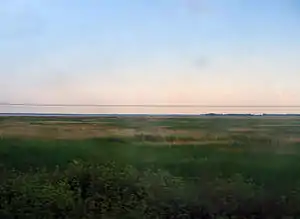
1950s
"Oh You Rye" (1950; 1964; 1978; 1992) (composer A. Doluhanyan; lyrics A. Newcomer 1950)
(a):[38][39][40][41][42][43][44][45][46]
(b):[47][48]
"Choir of Sailors from the Opera Dawn" (1954) (composer K. Molchanov; lyrics S. Severtsov): no data
"Cold Waves Lapping" (1954) (composer F. Bogoroditsky; lyrics Ya Repninsky): no data
"Kalinka" (1956; 1963; 1978; 1992).
(a):[49][50][44][51][52][53][54][55][56][57][58][59][60][61][62][63][64][65][66][67][68][69][70][71][72][73][74][42][75][76][77][78][46][79][80]
(b):[81][82][83][84][85][86]
"Annie Laurie" (1956; 1963).
(a):[63][64][65][67][68][79][72]
(b):[87][85]
"You Are Always Beautiful" (1956; 1963).
(a):[63][64][65][66][67][68][69][70][71][72][50][88][79][89]
"Forever" (1956; 1963).
(a):[90][91][65][66][67][68][69][92][76][70][71][72]
"Far Away" (1956) (composer G. Nosov; lyrics A. Churkin 1950).
(b):[87][85]
"Troika" (1959) (Traditional).
(a):[93][94][95][96][97]
.jpg.webp)
1960s
"Ridna My Mother" (1960) (composer P. Maiboroda; lyrics A. Malyshko: no data
"By Mostochku Narrow" (1960) (composer K. Akimov; lyrics M. Vershinin): no data
"Beautiful Moonlit Night" (or "Moonlight") (1960; 1963).
(a):[56][57][52][98][50][99][100][72][101]
(b):[85][86]
"Sing Soldiers", or "That Soldier Sings" (1960) (composer A. Doluhanyan; lyrics Nekrasova L. 1955)
(a):[101]
"I Will Be a Soldier Again" (1960s?).
(a):[102][103]
"Where Are Your Arms" (1948–65; 1985).
(a):[104][105][106]
"My Country I Pledge To You" (1963?).
(a):[103][107]
"Nightingales" (1963; 1975; 1978) (composer V.Solovev-Sedoy; lyrics A. Fatyanov)
(a):[104][108][50][44][51][54][109][89]
(b):[110]
"Near the Garden" (1963).
(a):[50]
"Before the Long Journey" (1964) (composer Matvey Blanter; lyrics Vladimir Dyhovichny 1962)
(a):[111][89][88]
"Song of Russia" (1964) (composer D. Kabalevsky; lyrics A. Newcomer)
(a):[111]
"Come My Way" (ca.1965).
(a):[112]
"Where This Country Was Built" (1965).
(a):[112][53]
"On a Hill" (1968).
(a):[62][52][113][46]
"Gorondorina La"' (1968).
(a):[114]
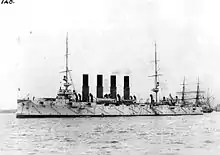
1970s
"Russia" (ca.1970).
(a):[115][54]
"Song of the Klintsah" (Oct 1971) (composer A. Kulygin, lyrics A. Annual 1971) broadcast in the USSR on All-Union Radio, to celebrate Belyaev's home town Klintsy[3][116] He performed the song in concerts in the Bryansk region in 1975.[7]
"Album:Русские Песни И Романсы"(1973) CM 03831-2.[117]
"'Wilderness" (1974).
(a):[118][93][94][119][96][76]
The Russian Field (1975) (composer J. Frenkel; lyrics I. Goff 1965)
(a):[120]
In My Moscow Suburb (ca.1975?).
(a):[121]
In the Dugouts (1975; 1977) (composer K. Sheets; lyrics A. Surkov 1942): no data
Accidental Waltz (1977) (composer M. Fradkin; lyrics E. Dolmatovskaya): no data
Ogonek (1977) (lyrics M.Isakovsky): no data
My Favourite (1977) (composer M. Blanter; lyrics E. Dolmatovskaya 1942): no data
Two Maxim (1977) (composer S. Katz;[122] lyrics M. Plyatskovsky 1941): no data
You Who Love (1978).
(a):[54]
Catalina (1978).
(a):[51]
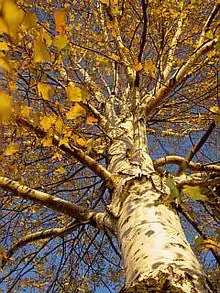
1980s
Evening on the Waterfront (1985).
(a):[123][108][120][103][88]
Evening on the Road/Night on the Road (undated) (composer V. Solovyov-Sedoy; lyrics A. Churkin 1943). Duet with Boris G. Shapenko)[124]
Execution of the Warrior Revolution (1987)
(a):[125][126]
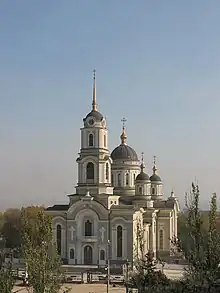
1990s
In the Sunny Meadow/Shine in the Field (1992).
(a):[80]
(b):[127][82]
Black Eyebrows (1992).
(a):[80]
(b):[128][82]
Happy Girl (1992).
(a):[38]
(b):[129]
Birch Tree Stood in the Meadow (1992).
(a):[38]
(b):[129]
In the Forest (1992).
(a):[38]
(b):[47]
Wait For Your Soldier/Wait a Day to Return (1992).
(a):[80]
(b):[130][82]
Undated
Lying (undated).
(a): no data
Take a Bandura (undated).
(a):[62][52]
Our Friends (undated).
(a):[89]
Hey Girl (undated).
(a):[62]
Rough sea spray (cruiser "VARYAGU") (undated).
(a):[39][120][42][76]
The Cruiser Aurora (undated) (music: V.Shainskiy; lyrics: M.Matusovskiy)[132]
Soldier's Wife (undated).
(a):[133]
Epitaph (undated).
(a):[49]
In the Central Steppes (undated).
(b):[134]
Baikal Beauty (undated) (composer A. Doluhanyan; lyrics M. Lisyansky): no data
Immortelle (undated) (composer S. Zaslavsky; lyrics A. Sofronov): no data
Donetski Night (undated) (composer E. Zharkovsky; lyrics N. Upenik, L. Titova 1975): no data
Where Are You Now, Friends (undated) (composer V. Solovyov-Sedoy; lyrics A. Fatyanov 1947): no data
And Again I am In Line (undated) (composer B. Muradeli; lyrics S. Bencken 1960): no data
Favourite, Remember Us (undated) (composer Boris Alexandrov; lyrics N. Dobronravov 1978): no data
In a Sunny Forest Clearing (undated) (composer V.P.Solovev-Sedoy; lyrics A. Fatyanov 1970): no data
Bryansky Partisan Song (undated) (composer D. Kabalevsky; lyrics V.Lebedev-Kumach). Duet with Alexei T. Sergeev: no data .[135]
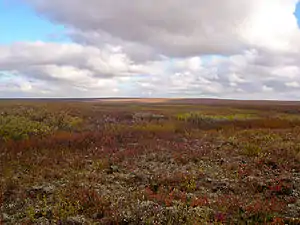
Shooting Kommunarov (undated) (composer V.Tan-Bogoraz): no data
Rodina (undated) (composer A. Samoylov; lyrics F. Savinov): no data
Click the Guy (undated) (composer LA Shats; lyrics V. Alferov 1977): no data
At the Gate, The Gate (undated) (traditional): no data
I Left the Army (undated) (composer S. Tulika; lyrics V. Malkov): no data
I Loved You (undated) (composer B.Sheremetyev; lyrics Pushkin): no data
I Met You (undated) (composer B.Sheremetyev; lyrics F.Tyutchev): no data
It Evokes Memories (undated) (composer P.Bulakhov): no data
I Took You into the Tundra (undated) (composer M. Fradkin; lyrics M. Plyatskovsky): no data.[136]
Listen If You Want (undated) (composer N.Shiskin): no data
My Moscow (undated) (composer O. Feltsman; lyrics A. Sofronov): no data
Separation (undated) (composer A.Gurilev; lyrics A.Koltsov): no data
Soldiers' Mothers (undated) (composer Boris Alexandrov; lyrics S. Bencken): no data
Soldiers Pribautki (undated) (composer A. Doluhanyan; lyrics G. Hodos). Duet with B. Ruslanov: no data
Unselfish Soul (undated) (composer A. Pakhmutova; lyrics M. Lisyansky): no data
We Went Out Into the Garden (undated) (composer M.Tolstoy; lyrics A.Butt): no data
The Book Motherland (undated) (composer Boris Alexandrov; lyrics N. Dorizo): no data
Kid (Sucu Sucu) (undated, 1960s?) (composer Tarateño Rojas; translator unknown, Russian & Spanish)[137]
To You I Swear the Fatherland (undated): no data

Discography
His 78s, LPs, CDs and DVDs are listed on the Alexandrov Ensemble discography page.
See also
References
- "image of Belyaev". Archived from the original on 2009-05-29. Retrieved 2009-04-04.
- ↑ "image of Belyaev". Archived from the original on 2009-05-29. Retrieved 2009-04-04.
- 1 2 3 4 5 6 7 8 9 10 11 "К 300-летию основания Клинцов. | Брянск — открытый сайт-справочник (путеводитель)". brnk.ru. Retrieved Jan 21, 2023.
- ↑ "Kalinka: Evgeny Belyaev and the Alexandrov Ensemble". Retrieved Jan 22, 2023 – via www.youtube.com.
- 1 2 3 4 5 6 7 "Беляев Евгений Михайлович". bse.sci-lib.com. Retrieved Jan 21, 2023.
- ↑ "Biography of Belyaev". Archived from the original on 2009-05-29. Retrieved 2009-04-04.
- 1 2 3 Тютчева, Брянская областная научная универсальная библиотека им Ф. И. "Брянская областная научная универсальная библиотека им. Ф. И. Тютчева". libryansk.ru. Retrieved Jan 21, 2023.
- ↑ Information from Leonid Kharitonov, who sang with him in the 1960s.
- ↑ Information from Leonid Kharitonov, fellow soloist in the Ensemble.
- ↑ "RUVR Voice of Russia: Alexandrov Ensemble". Archived from the original on 2009-11-02. Retrieved 2009-04-04.
- ↑ "USSR 1977 concert announcement and images of Belyaev". Retrieved Jan 21, 2023.
- ↑ "Несуществующая страница - Вопросы ответы". navoprosotveta.net. Retrieved Jan 21, 2023.
- ↑ "Jazzdixie webpage biography of Oleg Leonidovich Lundstrem". Retrieved Jan 21, 2023.
- ↑ "Lundstrem-Jazz webpage biography of Lundstrem; short descrip. of orchestra". Archived from the original on 2009-11-14. Retrieved 2009-04-11.
- ↑ "23 January 2007 - Блог Ильи Переседова". peresedov.livejournal.com. 23 January 2007. Retrieved Jan 21, 2023.
- ↑ See History of Russian animation and Garri Bardin. However the Rabbit voice in the cartoon is definitely Belyaev's, but apparently Bardin's Rabbit was sung by a woman, so the cartoon voice-overed by E.B. was by a different director?
- ↑ Information from Leonid Kharitonov, who knew him.
- ↑ "Архив сайта Администрации Брянской области 2002-2013 / Новости / 2006 / Май / 16". old.bryanskobl.ru. Retrieved Jan 21, 2023.
- ↑ "Japanese webpage: Biography of Belyaev". Archived from the original on 2009-05-29. Retrieved 2009-04-04.
- ↑ Information from Leonid Kharitonov, a fellow soloist who knew him.
- ↑ See also Russian Wikipedia article on Novodevichy Cemetery
- ↑ "look at No.106". Archived from the original on 2007-10-15. Retrieved 2013-03-08.
- ↑ D1106. ISBN 0-7697-8690-1. B0013N3LIG, published by Kultur, ca.1960, dir: I. Jugashvili. Musical dir: Boris Alexandrov, filmed in the USSR. See Alexandrov Ensemble discography for further details.
- ↑ Important: Please read the section "Critical Commentaries" on the article's discussion page before editing this commentary. Thank you.
- ↑ Belyaev singing "Nightingale" on Russian channel on YouTube
- ↑ "Обращение главы города Клинцы А.В. Долгова к посетителям сайта". www.klintsy.ru. Retrieved Jan 21, 2023.
- ↑ Official Site of the Communist Party: naming of school after Belyaev
- ↑ "Russian concert announcement 1977: "National treasure"". Retrieved Jan 21, 2023.
- ↑ "Sovmusic.ru - Советская музыка". www.sovmusic.ru. Retrieved Jan 21, 2023.
- 1 2 3 4 5 "Sovmusic.ru - Советская музыка". www.sovmusic.ru. Retrieved Jan 21, 2023.
- 1 2 3 4 5 6 7 8 9 "Sovmusic.ru - Советская музыка". www.sovmusic.ru. Retrieved Jan 21, 2023.
- ↑ Source: sovmusic.ru
- ↑ "Armchairgeneral: original Russian lyrics of "Nightingale"". Retrieved Jan 21, 2023.
- ↑ Armchairgeneral: Russian-English translation of "Nightingale" via Google Translate Tool.
- ↑ "In Russian: Alexandrov Ensemble webpage on Boris Alexandrov". Archived from the original on 2008-04-19. Retrieved 2009-04-10.
- ↑ Alexandrov Ensemble webpage on Boris Alexandrov
- ↑ "Belyayev, Evgeny Mikhailovich | Беляев, Евгений Михайлович | (1926-1994)". May 29, 2009. Archived from the original on 2009-05-29. Retrieved Jan 22, 2023.
- 1 2 3 4 "Album: Moscow nights WPCC-5349". Feb 21, 2004. Archived from the original on 2004-02-21. Retrieved Jan 21, 2023.
- 1 2 "Album: Russian Folk Songs VICP-4105". Oct 16, 2004. Archived from the original on 2004-10-16. Retrieved Jan 21, 2023.
- ↑ "Album: Japanese LP VICS-6000". Oct 16, 2004. Archived from the original on 2004-10-16. Retrieved Jan 22, 2023.
- ↑ "Album: Les Choeurs de L'Armee Rouge Vol.3 WMD242070". Oct 16, 2004. Archived from the original on 2004-10-16. Retrieved Jan 21, 2023.
- 1 2 3 "Album: Les Choeurs de L'Armee Rouge CD 74321423482". Oct 16, 2004. Archived from the original on 2004-10-16. Retrieved Jan 21, 2023.
- ↑ "Album: Russian disk, C-431-2". Archived from the original on 2012-05-06. Retrieved Jan 21, 2023.
- 1 2 3 "Album: Russian disk 33C20-08027-30". Apr 29, 2012. Archived from the original on 2012-04-29. Retrieved Jan 21, 2023.
- ↑ "Album: Songs By Soviet Authors 33C60-05689-90". Apr 15, 2012. Archived from the original on 2012-04-15. Retrieved Jan 21, 2023.
- 1 2 3 "Album: Bomba Music Best Folk Songs BoMB 033-205". Apr 29, 2012. Archived from the original on 2012-04-29. Retrieved Jan 21, 2023.
- 1 2 3 "Moscow Nights". Retrieved Jan 21, 2023 – via Amazon.
- ↑ DVD: Kultur: Soviet Army Chorus and Dance Ensemble D1106
- 1 2 "Album: Les Choeurs de L'Armee Sovietique 274.768". Feb 20, 2006. Archived from the original on 2006-02-20. Retrieved Jan 21, 2023.
- 1 2 3 4 5 "Album: Red Army Ensemble Military Music MAR-RAM1967". Feb 13, 2005. Archived from the original on 2005-02-13. Retrieved Jan 21, 2023.
- 1 2 3 "Album: Alexandrov Song and Dance Ensemble of the Soviet Army C60-08163-6". May 13, 2008. Archived from the original on 2008-05-13. Retrieved Jan 21, 2023.
- 1 2 3 4 "Album: Alexandrov Song and Dance Ensemble of the Soviet Army 33C-04649-50". Apr 22, 2012. Archived from the original on 2012-04-22. Retrieved Jan 21, 2023.
- 1 2 "Album: Alexandrov Song and Dance Ensemble of the Soviet Army C90-5661-2". May 6, 2012. Archived from the original on 2012-05-06. Retrieved Jan 21, 2023.
- 1 2 3 4 "Album: Russian Disk: 50th Anniversary 1928-78, 2 x LPs, 33C60-11207-10". May 13, 2008. Archived from the original on 2008-05-13. Retrieved Jan 21, 2023.
- ↑ "Album: Russian Folk Songs C20-13171 00". Jun 20, 2010. Archived from the original on 2010-06-20. Retrieved Jan 21, 2023.
- 1 2 "Album: Moonlight Over Moscow 74321-32043-2". Oct 20, 2004. Archived from the original on 2004-10-20. Retrieved Jan 21, 2023.
- 1 2 "Album: Russischen Volkslieder (German) GD69063". Jul 12, 2004. Archived from the original on 2004-07-12. Retrieved Jan 21, 2023.
- ↑ "Album: Japanese disk from Victor VDP-1164". May 11, 2008. Archived from the original on 2008-05-11. Retrieved Jan 21, 2023.
- ↑ "Album: Russian Folk Songs VDP-518". Feb 20, 2006. Archived from the original on 2006-02-20. Retrieved Jan 21, 2023.
- ↑ "Album: Russian Folk Songs VICP-40054/55". Feb 20, 2006. Archived from the original on 2006-02-20. Retrieved Jan 21, 2023.
- ↑ "Album: Russian Sound ARIOSO350". Oct 20, 2004. Archived from the original on 2004-10-20. Retrieved Jan 21, 2023.
- 1 2 3 4 "Album: The Alexandrov Song and Dance Ensemble of the Soviet Army C-01235-6". Apr 22, 2012. Archived from the original on 2012-04-22. Retrieved Jan 21, 2023.
- 1 2 3 "Album: Soviet Army Chorus and Band CDC-7478332". Jun 4, 2004. Archived from the original on 2004-06-04. Retrieved Jan 21, 2023.
- 1 2 3 "Album: Red Army Favourites HMV5730452". Feb 21, 2004. Archived from the original on 2004-02-21. Retrieved Jan 21, 2023.
- 1 2 3 4 "Album: Volga Boat Song, Soviet Army Chorus and Band CC30-9078". Feb 21, 2004. Archived from the original on 2004-02-21. Retrieved Jan 21, 2023.
- 1 2 3 "Album: The Best of EMI Classics: Russia TOCE-55513". Feb 21, 2004. Archived from the original on 2004-02-21. Retrieved Jan 21, 2023.
- 1 2 3 4 "Album: Les Choeurs de L'Armee Rouge CD 8334342". Feb 21, 2004. Archived from the original on 2004-02-21. Retrieved Jan 21, 2023.
- 1 2 3 4 "Album: Russian CD MKM117". Jul 25, 2004. Archived from the original on 2004-07-25. Retrieved Jan 21, 2023.
- 1 2 3 "Album: Kalinka, Favourite Songs Forever MKM132". Oct 16, 2004. Archived from the original on 2004-10-16. Retrieved Jan 21, 2023.
- 1 2 3 "Album: The Soviet Army Ensemble 33C1049". Apr 22, 2012. Archived from the original on 2012-04-22. Retrieved Jan 21, 2023.
- 1 2 3 "Album: Soviet Army Chorus and Band CD S35411". May 6, 2012. Archived from the original on 2012-05-06. Retrieved Jan 21, 2023.
- 1 2 3 4 5 "Album: Red Army Ensemble CD 094639203024". Apr 29, 2012. Archived from the original on 2012-04-29. Retrieved Jan 21, 2023.
- ↑ "Album: Russian Folk Songs VICP-41004". Jul 30, 2004. Archived from the original on 2004-07-30. Retrieved Jan 21, 2023.
- ↑ "Album: Les Choeurs de L'Armee Rouge WM242050". Oct 16, 2004. Archived from the original on 2004-10-16. Retrieved Jan 21, 2023.
- ↑ "Album: Les Choeurs de L'Armee Rouge 0927465012". Oct 16, 2004. Archived from the original on 2004-10-16. Retrieved Jan 21, 2023.
- 1 2 3 4 "Album: The Alexandrov Red Army Chorus 70th Anniversary AA980001-2". May 1, 2008. Archived from the original on 2008-05-01. Retrieved Jan 21, 2023.
- ↑ "Album: The Alexandrov Song and Dance Ensemble of the Red Army 70th Ann. 1928-78 AA970001". May 13, 2008. Archived from the original on 2008-05-13. Retrieved Jan 21, 2023.
- ↑ "Album: The Alexandrov Red Army Horus (sic) 4606777003976". Apr 22, 2012. Archived from the original on 2012-04-22. Retrieved Jan 21, 2023.
- 1 2 3 "Album: The Red Army Ensemble Vol.2 S36143". May 6, 2012. Archived from the original on 2012-05-06. Retrieved Jan 21, 2023.
- 1 2 3 4 "Album: Kalinka, Red Star Army Chorus WPCC-5121". Oct 20, 2004. Archived from the original on 2004-10-20. Retrieved Jan 21, 2023.
- ↑ (Amazon) Album: Kalinka B000O6AQUO
- 1 2 3 4 "Kalinka-Russian Folk Music". Retrieved Jan 21, 2023 – via Amazon.
- ↑ "Red Star: Red Army Chorus and Dance Ensemble". Retrieved Jan 22, 2023 – via Amazon.
- ↑ "Best Of The Red Army Choir". Jan 21, 2017. Retrieved Jan 21, 2023 – via Amazon.
- 1 2 3 4 5 EMI Classics: Red Army Ensemble, 0946-3-92030-2-4
- 1 2 DVD: Kultur: Soviet Army Chorus and Dance Ensemble, D1106
- 1 2 3 CD: EMI: Soviet Army Chorus & Band, CDC-7-47833-2 (DIDX-1015)
- 1 2 3 "Album: Red Army Choir CD MELCD60-01335". Jun 20, 2010. Archived from the original on 2010-06-20. Retrieved Jan 21, 2023.
- 1 2 3 4 "Album: Bomba, Best Lyric Songs, Alexandrov Song and Dance Ensemble of the Soviet Army BoMB 033-204". Dec 23, 2007. Archived from the original on 2007-12-23. Retrieved Jan 21, 2023.
- ↑ Album: Soviet Army Chorus and Band CD CDC-7478332
- ↑ Album: Red Army Favourites, Soviet Army Chorus and Band HMV5730452
- ↑ Album: Red Army Ensemble, Military Music 2 x CDs MAR-RAM1967
- 1 2 "Album: The Red Army Choir, The Definitive Anthology, 4 x CDs, 3070312". Jan 7, 2006. Archived from the original on 2006-01-07. Retrieved Jan 21, 2023.
- 1 2 "Album: Les Choeurs de L'Armee Rouge 4 x CDs 583 849-2". Oct 20, 2004. Archived from the original on 2004-10-20. Retrieved Jan 21, 2023.
- ↑ "Album: Les Choeurs de L'Armee Rouge, Anniversary 1928-2003, 2 x CDs 3089722". Oct 20, 2004. Archived from the original on 2004-10-20. Retrieved Jan 21, 2023.
- 1 2 "Album: Le Choeurs de L'Armee Rouge, Integrale, 4 x CDs AUS040504-5780912". Oct 20, 2004. Archived from the original on 2004-10-20. Retrieved Jan 21, 2023.
- ↑ "Album: Les Choeurs de L'Armee Rouge, 2 x CDs, AUS040505-5780822". Oct 20, 2004. Archived from the original on 2004-10-20. Retrieved Jan 21, 2023.
- ↑ Album: Les Choeurs de L'Armee Rouge 8334342
- ↑ "Album: The Red Army Ensemble Vol.2, S36143". May 6, 2012. Archived from the original on 2012-05-06. Retrieved Jan 22, 2023.
- ↑ Album: The Alexandrov Song and Dance Ensemble of the Soviet Army C-01235-6
- 1 2 "Album: Alexandrov Song and Dance Ensemble ST51182". Apr 22, 2012. Archived from the original on 2012-04-22. Retrieved Jan 21, 2023.
- ↑ "Album: Alexandrov Song and Dance Ensemble 33CM01971-7". May 6, 2012. Archived from the original on 2012-05-06. Retrieved Jan 21, 2023.
- 1 2 3 "Album: Bomba, Patriotic Songs, Alexandrov Song and Dance Ensemble of the Soviet Army, 2 x CDs, BoMB 033-202/203". Jul 15, 2010. Archived from the original on 2010-07-15. Retrieved Jan 21, 2023.
- 1 2 "Album: Wartime Choruses in Memory of 9th May 1945, MCD207". Feb 20, 2006. Archived from the original on 2006-02-20. Retrieved Jan 21, 2023.
- ↑ "Album: Russian disk, 50yr anniversary 1945-95, MELCD60-00615". Feb 20, 2006. Archived from the original on 2006-02-20. Retrieved Jan 21, 2023.
- ↑ "Album: Songs of Wartime, 40yr anniversary 1945-1984 (sic), C60-21657 009". Jun 19, 2010. Archived from the original on 2010-06-19. Retrieved Jan 21, 2023.
- ↑ "Album: Russian LP, 33C60-06133-34". Apr 29, 2012. Archived from the original on 2012-04-29. Retrieved Jan 21, 2023.
- 1 2 "Album: Russian CD, possibly for 50th Anniversary or 1928 or 1945, RDCD00434". Jul 16, 2004. Archived from the original on 2004-07-16. Retrieved Jan 21, 2023.
- ↑ "Album: Russian disk, 60th anniversary 1945-2005 CD, MELCD60-00938". Dec 23, 2007. Archived from the original on 2007-12-23. Retrieved Jan 22, 2023.
- ↑ CD: Melodiya: Sacred War (in Russian), MELCD60-00938/1
- 1 2 "Album: Russian disk C-431-2". May 6, 2012. Archived from the original on 2012-05-06. Retrieved Jan 21, 2023.
- 1 2 "Album: Alexandrov Song and Dance Ensemble of the Soviet Army, 33CM01829-30". Apr 22, 2012. Archived from the original on 2012-04-22. Retrieved Jan 21, 2023.
- ↑ "Album: The Alexandrov Song and Dance Ensemble of the Soviet Army, SH-7699". May 6, 2012. Archived from the original on 2012-05-06. Retrieved Jan 21, 2023.
- ↑ "Album: The Alexandrov Song and Dance Ensemble of the Soviet Army, SH-7688". Apr 22, 2012. Archived from the original on 2012-04-22. Retrieved Jan 21, 2023.
- ↑ "Album: Alexandrov Song and Dance Ensemble of the Soviet Army, CM02873-4". Jun 20, 2010. Archived from the original on 2010-06-20. Retrieved Jan 21, 2023.
- ↑ "BeMusic".
- ↑ "Евгений Беляев – Русские Песни И Романсы (1973, Vinyl) - Discogs". Discogs. 1973.
- ↑ "Album: Les Choeurs de L'Armee Rouge, 2 x CDs, 533 536-2". Oct 16, 2004. Archived from the original on 2004-10-16. Retrieved Jan 21, 2023.
- ↑ "Album: The Best of the Red Army Choir, The Definitive Collection, 2 x CDs, SILKD6034". Oct 20, 2004. Archived from the original on 2004-10-20. Retrieved Jan 21, 2023.
- 1 2 3 "Album: Japanese 5 x CD set, VICS-60006-10". Oct 16, 2004. Archived from the original on 2004-10-16. Retrieved Jan 21, 2023.
- ↑ "Album: Russian 2 x CD set, CM03181-2". Apr 15, 2012. Archived from the original on 2012-04-15. Retrieved Jan 21, 2023.
- ↑ webpage: Biography of Zigmund Katz who composed "Two Maxim".
- ↑ "Album: Wartime Choruses in Memory of 9th May 1945, MCD207". Feb 20, 2006. Archived from the original on 2006-02-20. Retrieved Jan 22, 2023.
- ↑ Evening/Night on the Road may be identical with Evening on the Waterfront: no evidence either way.
- ↑ "Album: A Programme of Revolutionary Songs, 1917-87, 70yrs, MCD203". Jun 4, 2004. Archived from the original on 2004-06-04. Retrieved Jan 21, 2023.
- ↑ "Album: Echoes of a Red Empire, Russians Songs of Struggle from the Great Revolution and Second World War, CD, JASMCD2576". Sep 7, 2004. Archived from the original on 2004-09-07. Retrieved Jan 21, 2023.
- ↑ "Kalinka". Retrieved Jan 22, 2023 – via Amazon.
- ↑ (Amazon) Album: Kalinka, Red Star Army Chorus CD, B000O6AQUO
- 1 2 "Moscow Nights". Retrieved Jan 22, 2023 – via Amazon.
- ↑ (Amazon) Album: Kalinka, Red Star Red Army Chorus CD, WPCC-5121
- ↑ "Evgeny Belyaev. Album: Kalinka, Russian Folk Songs (1992)". music.apple.com. Apple Music. 1992. Retrieved 22 January 2023.
- ↑ "Cruiser Aurora" could be the same song as "Rough Sea Spray (Cruiser Varyagu)"
- ↑ "Album: Alexandrov Song and Dance Ensemble of the Soviet Army, 33CM-02137-38". Apr 22, 2012. Archived from the original on 2012-04-22. Retrieved Jan 21, 2023.
- ↑ Silva Classics: The Best of the Red Army Choir, SILKD6034
- ↑ It has been disputed whether the tenor here is Belyaev; but no evidence to the contrary has yet been found.
- ↑ It is disputed whether this is Belyaev's voice; no evidence for a different tenor has yet been found.
- ↑ "Evgeny Belyaev sings "Kid" Малыш". Retrieved Jan 21, 2023 – via www.youtube.com.
External links
- Russian Wikipedia page on Evgeny Belyaev in Russian
- Literature about Belyaev in the russian press (Russian)
- Sci-lib page: Literature about Belyaev in Russian Press Russian-English
- Homepages of the Alexandrov ensemble (Russian)
- Japanese webpage detailing biography and discography of Belaev Japanese
- RUVR Broadcasting company (In English; with Alexandrov Ensemble and Belyaev mentioned halfway down page)
- 1tvrus 1977 images of Belyaev (Russian-English)
- Sci-lib biography of Belyaev (Russian-English)
- Communist Party webpage on 2008 memorial service for Belyaev (Russian-English)
- Bryansk Guide webpage on Klintsy's 300th anniversary (Russian-English)
- Image of bust of Belyaev in his home town of Klintsy (Russian-English)
- Klintsy webpage 14th Feb 2007: Plans for bust of Belyaev in Klintsy (Russian-English)
- Images of A.Smirnov, sculptor of the bust of Belyaev in Klintsy (Russian-English)
- Voce del leone webpage: Review of /EMI Classics CD: Red Army Ensemble
- Red Data book of Russian pop music: Evgeny Belyaev (in Russian; short biography and songlist)
- Youtube: Eveny Belyaev sings Motherland (1992), his last recording.
